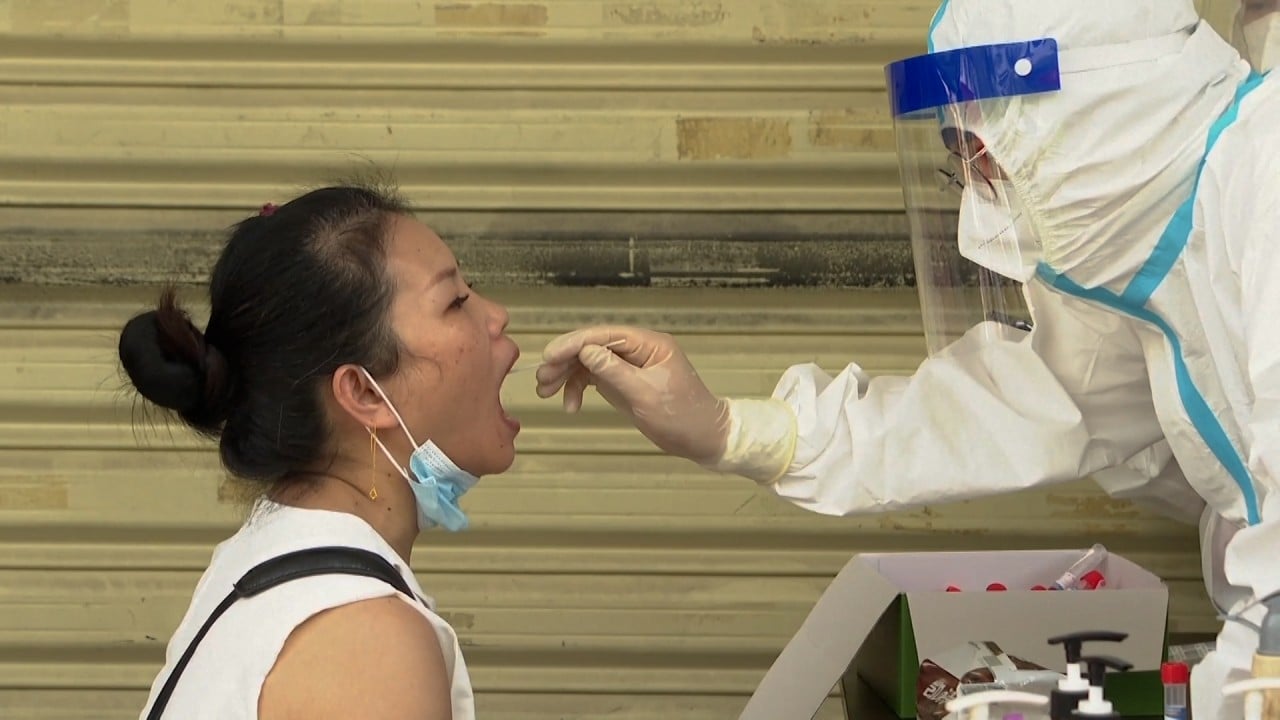
Hong Kong unemployment hits lowest level since coronavirus pandemic began, with economy boosted by multibillion-dollar e-voucher scheme
- Jobless rate drops to 4.7 per cent for three-month period ending in August, with some 10,700 fewer people out of work
- The rolling total is down 0.3 percentage points from the period spanning May to July
Figures from the Census and Statistics Department released on Thursday showed that the rate dropped to 4.7 per cent for the three-month period ending in August.
The rolling total was down 0.3 percentage points from the period spanning May to July, signalling a sustained economic recovery brought on by the easing of Covid-19 locally.
The latest jobless rate is the lowest since early 2020, when it reached 4.2 per cent in the January to March period, before it dropped to 7.2 per cent for the three months ending in February – the worst showing since 2004.

According to the figures, about 187,700 people remained out of work, some 10,700 fewer than in the preceding quarter, while the number of underemployed fell by 6.6 per cent, to 86,200 residents.
Joblessness declined across almost all major business areas, except for the food and drinks sector, which remained unchanged at 8.6 per cent after successive periods of decline since the start of the year.
Unemployment in the retail and accommodation services sectors fell by 0.4 and 0.5 percentage points from the preceding three-month period to 6.4 per cent and 6.9 per cent, while the rate fell by 0.7 percentage points to 7.4 per cent in construction.
E-voucher spending spree raises bar on hopes for Hong Kong growth: minister
Secretary for Labour and Welfare Law Chi-kwong said the jobs market should see further improvement as the economy continued to recover.
“The government’s disbursement of electronic consumption vouchers will continue to render support to consumption-related activities,” he said, referring to the HK$36 billion (US$4.63 billion) scheme rolled out last month.
But Law warned that continued spread of the Delta variant meant the pandemic remained “a key source of uncertainty over the economic and labour market outlook”.
To achieve a full economic recovery, Law said it was essential for the community to strive towards more widespread vaccination.
Last month, the government upgraded its forecast of Hong Kong’s economic growth to between 5.5 per cent and 6.5 per cent this year, after the city’s gross domestic product registered robust growth of 7.6 per cent year on year in the second quarter.
For the first half of 2021, real GDP grew 7.8 per cent from the same period last year.

01:39
China’s Delta variant outbreak in Fujian surges as Covid-19 cases hit 165 in a week
Simon Lee Siu-po, co-director of the international business and Chinese enterprise programme at Chinese University, called the pace of recovery satisfactory, but warned the improvement in employment might slow towards the end of the year, with the jobless rate hovering around 4 per cent.
“Employment in the catering sector remained stagnant as restaurants can’t hold events to earn big money under the social-distancing restrictions,” he said.
“The city’s economic recovery will not be in full swing until the government has fully opened up the borders, especially with mainland China.”
Lee did not expect the “Come2HK” scheme, which allows 2,000 non-Hong Kong residents a day to enter the city from Guangdong and Macau without undergoing compulsory quarantine, to bring in many visitors, as they would still be subject to two weeks of quarantine after going back across the border.

